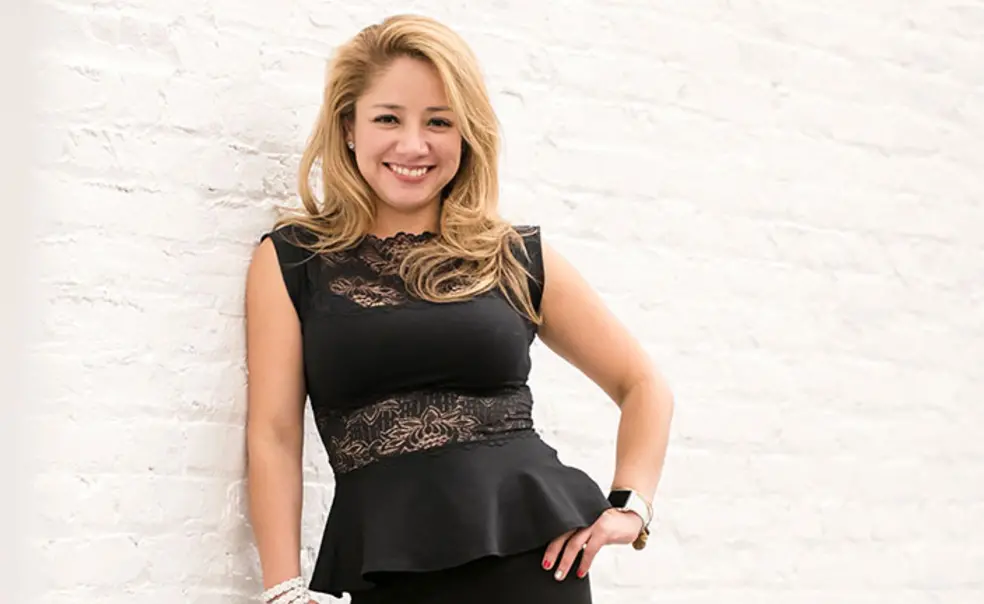Podcast Spotlight: Mayra Ceja ’03 Sits Down With Leading Founders and Investors
On her podcast series Venture Unplugged, Mayra Ceja ’03 interviews entrepreneurs and investors, in industries that range from blockchain to direct-to-consumer retail, with the common thread of getting a clearer picture of what makes successful leaders tick. The format may be familiar to alumni who’ve attended the Reunions conversations Ceja has led as part of the Princeton Entrepreneurs’ Network (PEN). In fact, the PEN events and other “fireside chats” with tech leaders that she’s hosted inspired Ceja to start a podcast, to expand the reach of the wisdom and advice she’s gleaned from those interviews. “Now, everybody who can’t get into the room can listen to that conversation in a way that they couldn’t have before,” she says.
Ceja has featured a few alumni as guests on season one of Venture Unplugged, including Mike Novogratz ’87, founder and CEO of the cryptocurrency investment firm Galaxy Digital; Ben Cogan ’12, co-founder of the contact-lens retailer Hubble; and Muneeb Ali *17, co-founder and CEO of the decentralized computing network Blockstack. Ceja also sends an email newsletter featuring tips from her guests. She spoke with PAW last month.
Two sides of the table
“My passion for entrepreneurship started more from investor side of things. Right after Princeton, I worked for Guggenheim Partners in their hedge fund and then went back to business school. I got my MBA from Wharton and felt deeply passionate about startups. I ended up actually launching Princeton University’s first Alumni Entrepreneurs Fund, and that really got me on a different trajectory, as a venture capitalist. Over the years, what I think that’s done is allowed me to be on both sides of the table — both as a founder and as a venture capitalist — and the ability to speak to both is partially what makes my podcast unique. I interview top founders and investors and really dive in deep to the questions that matter to our audience.”
THE PLAYLIST
Three more podcasts to check out this month
1. Theater producer JORDAN ROTH ’97 talks about creativity, personal style, and gender fluidity with fashion designer Norma Kamali on her Normalife podcast.
2. On How I Got Into College, KIM DIGILIO ’95, a former Princeton admissions officer, opens up about her self-loathing in high school and gives advice on dealing with the pressure of the college search.
3. RALPH NADER ’55 talks with author Tom Mueller about the personal costs that whistleblowers endure on the Ralph Nader Radio Hour.
Learning opportunities
“My audience falls into a couple of different buckets. You have the aspiring entrepreneurs — entrepreneurs looking to learn more from the best. You also have the curious — people that are tech-curious, founder-curious, or even blockchain-curious. What we’re really talking about are cutting-edge technologies, innovations that speak to wide groups of people. Within all of our episodes, I think that every person who listens can connect in some way with whatever topic we’re talking about, even if it’s something new to them.”
Asking the unexpected question
“I think most people want to open up. A lot of [guests] have been on this media circuit where they have canned responses for x, y, and z, and they’re good at it — they’ve told their stories and they’ll retell them. But they have all these other interesting thoughts about questions that you and I might have, whether it’s space travel or favorite productivity hacks. It’s exciting for them to reveal something, and exciting for us to listen to it.”
The startup mentality
“Going through the process of launching my own podcast, I did have to go through those questions that every founder asks themselves: Is there a market for this? Who’s my target audience? How do I go to market it? And how do I design something that’s unique and different and is going to withstand a couple of seasons?”
Setting the tempo
“My job as a podcast host is really to be a little impatient, for my audience: I’m there representing them and their listening experience, so my job during each interview is really to move the conversation forward at the right times, to slow it down when conversations get deeper, and to figure out that right pace so that it eventually becomes a full-length story within 30 minutes, which tends to be the ideal listening time.”
Evergreen, engaging conversations
“Unlike most podcasters, I actually try do most of my interviews in person, whenever time and scheduling permits, because I think there’s just such a different flavor of being face to face. It really creates intimacy — I don’t see them as interviews, I actually see them more as conversations. The listener is more like a friend, listening in on a conversation, rather than listening to people on a stage, which provides a different connotation. The idea is to have these intimate conversations that can transcend both time and space. A lot of the content that we talk about is best practices: how to launch a business, how to run a business, how to deal with specific challenges, going to market, dealing with competition. These questions are evergreen, so people can pick up the conversations and feel like they’ve just taken place.”
Dream guests
“There are so many guests that I’d like to have, but a few come to mind: The illustrious Jeff Bezos ’86. He’s been one of the most referred-to people on the podcast when I ask my guests, ‘who are the founders you admire?’ And the second one would be Serena Williams. She’s had a tremendous career in tennis, and recently she launched a venture-capital firm. I think that transition of going to a brand new field is always interesting.”
Interview conducted and condensed by Brett Tomlinson
Alumni, if you have a podcast that you’d like to share with PAW readers, please email us at paw@princeton.edu.












No responses yet